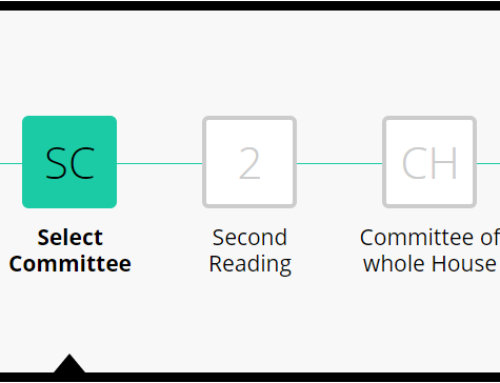Luke Oldfield discusses the art of engaging with a ‘Non-Opinion’. This article was written for the New Zealand Skeptic Journal issue number 114. MSoF hopes to write regular articles for the Journal. Become a member of the NZ Skeptics to get a copy.
When the doors to Hamilton’s first Carl’s Jr. franchise finally swung open on a dreary autumn day in 2013, I made my way to the first available counter and ordered up my own grease filled fantasy. I grinned as a bubbly Waikato Times journalist (a high school friend) approached and remarked, “I didn’t think you’d do it, the first customer in Hamilton! I guess we’ll have to make a celebrity out of you,” all the while barely controlling her laughter. Indeed, for the next few days, I was somewhat of a minor Facebook celebrity as the story began to circulate among friends, students and otherwise bored and easily entertained Hamiltonians.
With the exception of those that abstain from meat for ethical or cultural reasons, the act of revelling in fast food folklore would probably be considered a rather innocuous pastime of a graduate student with too many spare hours in a day. After all, as skeptics, what else we choose to pursue in our spare time is hardly as important as the research we cite or write, right?
Well, maybe or maybe not. I, for one, have a growing feeling we need to seriously reconsider how we approach public engagement, who we approach, and what we present them with. Google-proficient anti-fluoridationists have also enjoyed my Carl’s Jr. adventure, although for different reasons. But their cynical take on my stunt – copying and pasting the article each and every time we cross paths on the internet – should give some necessary pause to our current approach.
The pretext to this view is derived from what we’ve recently digested in the field of political psychology. Nythan’s paper Effective Messages In Vaccine Promotion: A Randomized Trial (2014) lends to the hypothesis that individuals are even less likely to adjust their pre-existing world views in the light of new evidence. As I flicked through the paper I found myself nodding as I recalled numerous instances where, as a society, we had attempted to correct the misinformation online regarding water fluoridation, only to find that the person presenting such information becomes even more enamoured with pseudo-scientific beliefs.
Freelance political philosopher Eric Hoffer referred to those persons with rigid and polarised views as ‘True Believers’. Indeed, I would contend that opponents of water fluoridation are the gold standard of true believer, and like the aforementioned anti-vaccinator, they’re increasingly likely to dig their heels in when faced with conflicting evidence. Which perhaps suggests that engaging with them is practically useless, unless our engagement is accessible by those who are yet to develop an opinion on the matter and have a sufficient level of scientific literacy.
For the anti-fluoridationist, ‘minor’ details matter little. It does not matter that I acknowledged my choice of burger was an artery thickener any more than when Harvard researcher Anna Choi publicly stated that her meta-analysis into the neurotoxicity of fluoride was not related to community water fluoridation.
Referenda in Hamilton, Whakatane and Hastings, despite all returning a positive outcome for water fluoridation policy, have all had one other common theme: low participation. It’s perhaps this frontier, those non-voters, rather than the True Believer, that deserve a greater level of attention by skeptics, particularly as low participation rates can often produce undesirable electoral results.
Political scientist Philip Converse first introduced the concept of a ‘non-opinion’ after an analysis of electoral surveys in his seminal work The American Voter. The varying degrees of a ‘non-opinion’, according to Converse, often make up the majority of the electorate. The non-opinion is someone who will either not vote or not strongly consider the candidate or subject matter before voting. In the instance of water fluoridation, it could be someone who has not been sufficiently compelled to seriously consider the argument being made before them. Later research, in particular that by Conover and Feldman theorised that the non-opinion is susceptible to four categories:
- Existing position
- Ideology predisposition
- Party cues
- ‘Candidate’ Characteristics
Call me a pessimist, but I would be inclined to argue that carefully explaining to a ‘non-opinion’ that hydrofluorosilicic acid dissociates in water and becomes the fluoride ion, the same fluoride ion found ‘naturally’ in New Zealand waterways, is about as useful as explaining to a bunch of young parents the complexities of ethnic rivalries among Kyrgyz and Uzbeks in the Central Asian Plateau. A complete lack of literacy in the most basic principles of toxicology (existing position), borne in part out the of the dismantling of compulsory science education in senior high school has made even the most nuanced discussion about ‘how things work’ the modern-day pipe dream of science communicators.
In his blog Dr Ken Perrott, science advisor for Making Sense of Fluoride, has sought to neutralize the ideological predispositions of anti-fluoridationists, pointing out that ‘choice’ can indeed be exercised and the provision of a ‘social good’ (such as a reduction of tooth decay via water fluoridation) is part of the very fabric of a modern progressive society. Furthermore, it’s perhaps quite remarkable that no political party currently represented in the New Zealand parliament has opportunistically latched onto an opposition of community water fluoridation.
This then leaves the skeptic with only one remaining consideration when engaging a non-opinion: candidate characteristics. Skeptics have a long and proud tradition of pointing out fallacious arguments as an important fundamental of critical thinking. An ad hominem based on someone’s circumstances, even their penchant for a delicious burger, is clearly a fallacious argument. But to dismiss the relevance of someone’s extra-curricular activities in the court of non-opinion would be to deny the ability of an emotional argument to trump a rational one.
So let them talk about my/our affection for burgers, let’s not rise above it, let’s not sit on our pedestal and point out an error in reasoning. We can leave that to our academic institutions and our government agencies. As skeptics, let’s remind the public of where the greater level of credibility can be sought. Aisling Fitzgibbon (The Girl Against Fluoride) is a ‘qualified’ angel healer with a marketing strategy that involves stripping down to her underwear during protests; and Paul Connett is a retired professor who accepts funding from an internet entrepreneur who also just happens to sell water filters and fluoride-free toothpaste and claims that cancer is a fungus that can be cured with baking soda. Enough said.
Politics is no respecter of rationality. It’s an often arbitrary process of deciding “who gets what, when and how”. Helping those with no opinion identify the characteristics of those at the forefront of anti-fluoride movements is often the single most useful tactic we will ever have at our disposal.










I don’t want to stop you having fluoride, I just want to have the choice for myself and my family.
My reasoning includes applying the precautionary principle: risk of brain damage etc vs risk of tooth decay. How can these risks be mitigated? Prevent tooth decay by other well-known measures. Avoid fluoride toxicity by not ingesting it (topical application is a different issue).
For a taste of science on the anti-fluoride side, how about the Harvard study, which linked fluoride to lowered IQ in children? http://www.hsph.harvard.edu/news/features/fluoride-childrens-health-grandjean-choi/ and the follow-up study http://www.sciencedirect.com/science/article/pii/S0892036214001809
and more at http://fluoridealert.org/studies/brain01/
And the impact on thyroid glands: https://scholar.google.co.nz/scholar?hl=en&q=fluoride+thyroid
There’s more out there, but it depends if you are already a ‘true believer’ in fluoride benefits, or if your opinion is open to new evidence?
Weigh up the risks for yourself, but please don’t force it on me.
Brent I suggest you read more of our website or our Facebook page. You are repeating anti-fluoride myths that we have debunked many times over.
“I just want to have the choice for myself and my family”
No one here is stopping anyone to vote it out. But if you don’t want fluoridated water don’t drink it. Use a filter, buy water, use your town’s non-fluoridated tap, collect rain water, etc.
“My reasoning includes applying the precautionary principle”
Actually the precautionary principle is for fluoridation. You’re risking the lives of children.
“risk of brain damage”
No evidence at the recommend levels.
“For a taste of science on the anti-fluoride side, how about the Harvard study, which linked fluoride to lowered IQ in children? ”
Have you actually read these studies? We have and I suggest you read the scientific views on this matter.
http://msof.nz/infomation/myth-busting-fluoridation-and-iq/
“There’s more out there, but it depends if you are already a ‘true believer’ in fluoride benefits, or if your opinion is open to new evidence?”
We are pro-science here, we will change our mind when the scientific consensus change theirs. Cherry picking studies to support your views is anti-science.
A systematic review is a literature review focused on a research question that tries to identify, appraise, select and synthesize all high quality research evidence relevant to that question.
There has been many major systematic reviews, all supporting the safety and effectiveness of fluoridation. Public Health England has just released their water fluoridation review– “Water fluoridation Health monitoring report for England 2014” and it concluded:
“This monitoring report provides evidence of lower dental caries rates in children living in fluoridated compared to non-fluoridated areas. Similarly, infant dental admission rates were substantially lower. There was no evidence of higher rates of the non-dental health indicators studied in fluoridated areas compared to non-fluoridated areas. Although the lower rates of kidney stones and bladder cancer found in fluoridated areas are of interest, the population-based, observational design of this report does not allow conclusions to be drawn regarding any causative or protective role of fluoride; similarly, the absence of any associations does not provide definitive evidence for a lack of a relationship.”
https://www.gov.uk/government/uploads/system/uploads/attachment_data/file/300202/Water_fluoridation_health_monitoring_for_england__full_report_1Apr2014.pdf
Similarly, a review – “Health effects of water fluoridation: A review of the scientific evidence” -written on behalf of the Royal Society of New Zealand and the Office of the NZ Prime Minister’s Chief Science Advisor concluded:
“Councils with established CWF schemes in New Zealand can be confident that their continuation does not pose risks to public health, and promotes improved oral health in their communities, reducing health inequalities and saving on lifetime dental care costs for their citizens. Councils where CWF is not currently undertaken can confidently consider this as an appropriate public health measure, particularly those where the prevalence and severity of dental caries is high. A forthcoming study from the Ministry of Health is expected to provide further advice on how large a community needs to be before CWF is cost-effective (current indications point to all communities of 1000+ people).”
http://assets.royalsociety.org.nz/media/2014/08/Health-effects-of-water-fluoridation_Aug_2014.pdf
-Dan